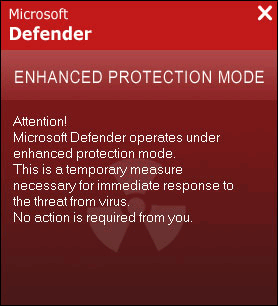Pinaview
The Pinaview browser hijacker is a type of intrusive software that targets Mac users, specifically. Once installed on a computer, it takes control of the browser by modifying several essential settings, such as the homepage and search engine, and replacing them with a promoted address. This can be a frustrating experience for users, as they may find it difficult to browse the internet and may even be exposed to online schemes and other risks by the unwanted advertisements that are generated.
One of the primary ways in which Pinaview operates is by redirecting the user's search queries through shady search engines. These search engines may not provide accurate or useful results and may instead be used to serve up more ads, additional PUPs (Potentially Unwanted Programs), and in some cases, even malware. This can put the user's computer at risk and compromise their personal information.
Table of Contents
PUPs may Spy on Users’ Browsing Activities
Having browser hijackers and PUPs installed on a user's device can be a serious risk to their online security and privacy. These types of programs are often designed to take control of the user's browser and display unwanted ads, redirect their searches, and even collect sensitive information without their knowledge or consent.
One of the primary risks caused by browser hijackers and PUPs is connected to the user's privacy. These programs often collect data on the user's browsing habits, including their search history and website visits. This gathered data can be sold to third-party advertisers or used to display targeted advertisements, which can be intrusive and annoying.
In addition to the security and privacy risks, browser hijackers and PUPs also may slow down the user's computer and cause other performance issues. These programs may use up system resources, resulting in slower startup times and sluggish performance. They may also cause the user's browser to crash or freeze, making it difficult to use the internet effectively.
PUPs Rely on Questionable Methods for Their Distribution
The distribution of PUPs and browser hijackers often involves questionable methods that are aimed at tricking users into installing these programs without their knowledge or consent. One of the most common methods used is software bundling, where PUPs and browser hijackers are bundled with legitimate software and installed on the user's computer without their knowledge. This can happen when users download free software from untrusted sources or when they fail to read the fine print during installation.
Another questionable method used in the distribution of PUPs and browser hijackers is social engineering. This involves using tactics such as fake pop-up ads, fake software updates, or fake tech support messages to trick users into downloading and installing unwanted software. These messages may look like legitimate warnings or notifications, but they are designed to scare users into taking action that will install the PUP or browser hijacker.
In addition to software bundling and social engineering, PUPs and browser hijackers may also be distributed through deceptive advertising practices. For example, some ads may promise free or discounted software, but in reality, the software is bundled with PUPs or browser hijackers. These ads may be difficult to distinguish from legitimate ads, making it easy for users to fall for the deception.
Overall, the distribution of PUPs and browser hijackers often involves questionable methods that are aimed at tricking users. Users must be cautious when downloading software, to always read the fine print during installation, and avoid clicking on suspicious ads or messages. By taking these precautions, users can help protect themselves from these unwanted programs.
Pinaview Video
Tip: Turn your sound ON and watch the video in Full Screen mode.

Directories
Pinaview may create the following directory or directories:
| %localappdata%\pinaview |


